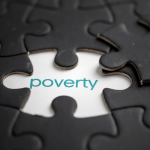
Our subject this week is the kind of peace establishing through achieving justice, and our reading this week is from the gospel of Luke:
After Jesus had said this, he went on ahead, going up to Jerusalem. As he approached Bethphage and Bethany at the hill called the Mount of Olives, he sent two of his disciples, saying to them, “Go to the village ahead of you, and as you enter it, you will find a colt tied there, which no one has ever ridden. Untie it and bring it here. If anyone asks you, ‘Why are you untying it?’ say, ‘The Lord needs it.’ ”
This is Part 1 of Peace Through Justice Doesn’t Need A War Horse
Welcome Readers! Please subscribe to Social Jesus Here.
Those who were sent ahead went and found it just as he had told them. As they were untying the colt, its owners asked them, “Why are you untying the colt?”
They replied, “The Lord needs it.”
They brought it to Jesus, threw their cloaks on the colt and put Jesus on it. As he went along, people spread their cloaks on the road.
When he came near the place where the road goes down the Mount of Olives, the whole crowd of disciples began joyfully to praise God in loud voices for all the miracles they had seen:
“Blessed is the king who comes in the name of the Lord!”
“Peace in heaven and glory in the highest!”
Some of the Pharisees in the crowd said to Jesus, “Teacher, rebuke your disciples!” “I tell you,” he replied, “if they keep quiet, the stones will cry out.” (Luke 19:28-40)
There are many ways to achieve social and political peace. The most popular means empire has used historically is military force. If your military might is great enough, you can keep the peace through the mere threat of reprisal.
Jesus offered a different path to peace: peace born of distributive justice. Distributive justice is the fair allocation of resources, opportunities, and benefits within a society. It is fairness in the distribution of goods and services as well as the burdens of the work it takes to create those goods and services. Distributive justice takes into account each individual’s needs and contributions, and seeks to balance both with the broader goals of social good and common thriving. When society experiences the fair and just distribution of rights and resources, peace is the result.
This is the kind of peace envisioned by the Hebrew prophets:
Everyone will sit under their own vine
and under their own fig tree,
and no one will make them afraid,
for the LORD Almighty has spoken. (Micah 4:4)
In the context of our reading this week, Rome practiced the kind of peace born instead out of military might and fear of reprisal after insurrection. When Rome would conquer a territory, the military general would enter the conquered city on a war stallion or steed, leading a military processional and sometimes even parading conquered soldiers in tow.
But again, the Hebrew prophets envisioned a different kind of peace achieved through a different type of means. Let’s take a look at that, next. (Read Part 2)
Are you receiving all of RHM’s free resources each week?
Begin each day being inspired toward love, compassion, justice and action. Free.
Sign up at HERE.















